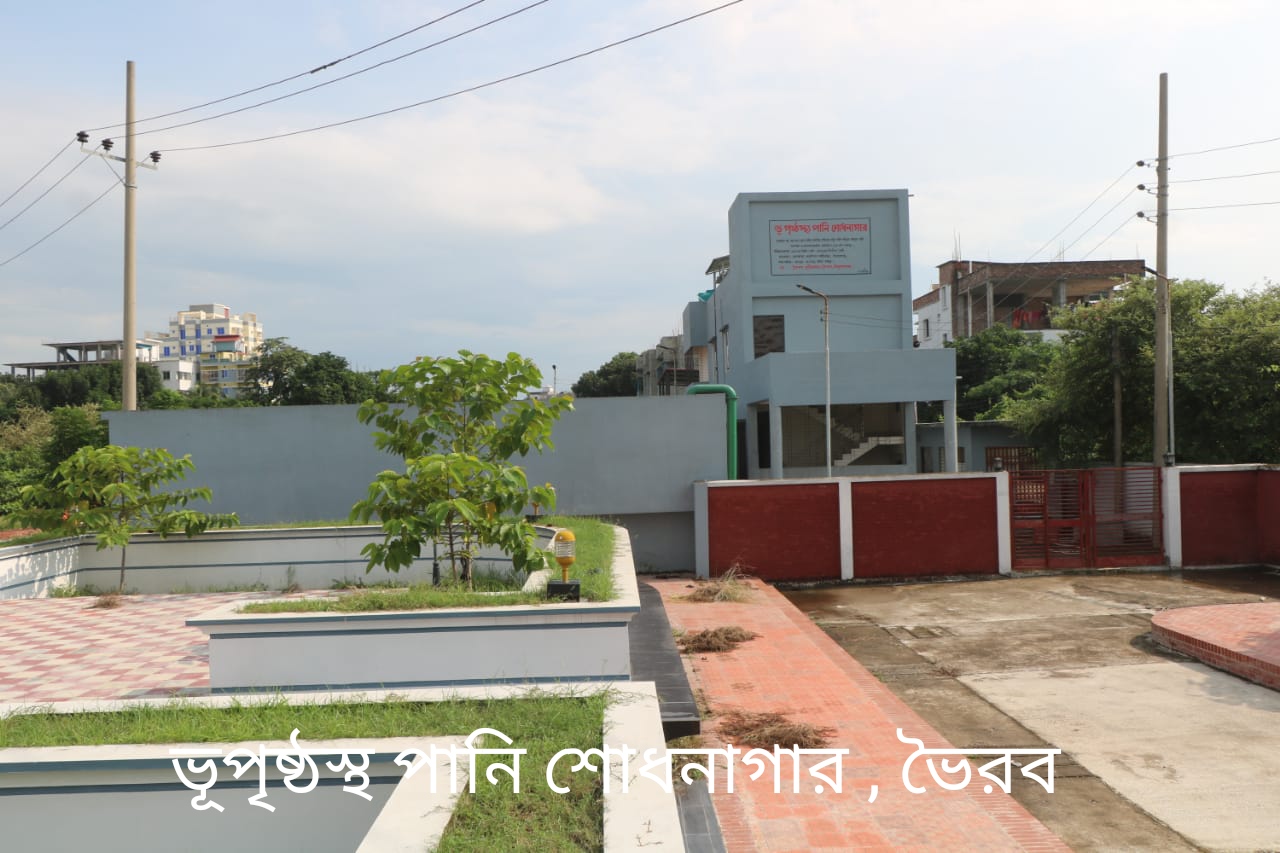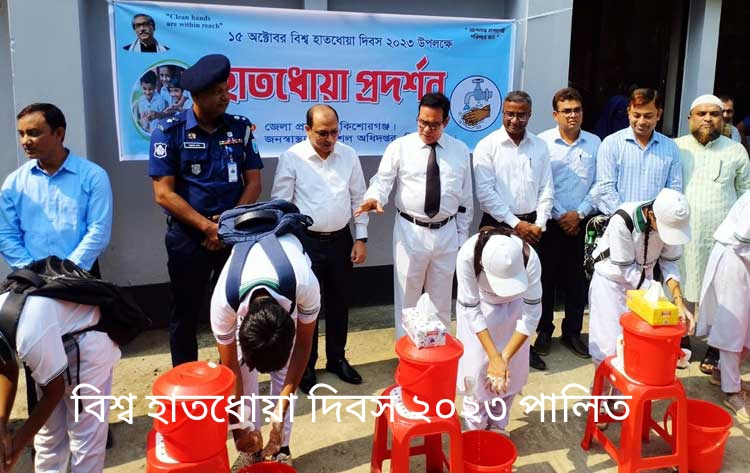| Introduction : |
| |
The Department of Public Health Engineering is the national lead agency for provision of drinking water supply and waste management in the country excepting Dhaka, Narayanganj and Chittagong cities where WASAs operate.
With the challenges generated by the discovery of arsenic in incremental areas since its first detection in 1993, DPHE with its development partners is trying to ameliorate the sufferings caused by the lack of safe water. Alternative options for safe water supply are being catered in worse affected areas.
Similarly for excreta and other waste management DPHE is implementing different projects to achieve an improved environment.
The report documents the financial outlay, the achievement, issues and lessons learnt and challenges ahead so that the concerned are benefited and able to contribute better for the improvement of the sector.
Local governments, urban and rural, are involved in the delivery of WSS services.
|
| Water Supply and Sanitation Sector Status in Bangladesh |
| |
In recent past, 97% of the people had access to safe water within 150 meters. With the discovery of arsenic in groundwater, the coverage has come down to about 75%. However, alternative options are being implemented for supply of arsenic safe water.
The sanitation coverage showed a dismal figure. Only about 20% people use sanitary latrines in the rural areas. And an additional 35% rural people use homemade pit latrines.
The coverages of WSS in urban areas though balanced, are not satisfactory and are a little above 50%.
The technological options in rural water supply are Shallow Tubewells, Deep Tubewells, Tara Tubewells, Pond Sand Filters, Rainwater Harvesters, Ring wells, Infiltration galleries depending on natural water quality and hydro-geological conditions.
The urban water supply adopts piped water supply with deep tubewells in core areas and handpumps tubewells in the fringes. There are several surface water treatment plants also.
For sanitation simple pit latrines, water seal latrines (single, double), offset pit latrines, septic tanks etc. are being used. About 30% of Dhaka City only enjoys conventional water borne sewerage system in the country.
|
| |
The National Policy, the role of DPHE in WSS in Bangladesh and the allies in the sector |
| |
The National Policy for Safe Water Supply and Sanitation 1998 |
|
| |
For sustainable and equitable WSS service provision at an affordable cost, the GoB formulated the National Policy for Safe Water Supply and Sanitation 1998. The highlights of the Policy are furnished below: |
| Development Objective |
| |
Improvement of standard of public health and ensuring improved environment. |
| |
Mid-term Goals |
| |
- Increasing the present coverage of safe drinking water in rural areas by lowering the average number of users per tube-well from the present 105 to 50 in the near future.
- Ensuring the installation of one sanitary latrine in each household in the rural areas and improving public health standard through inculcating the habit of proper use of sanitary latrines.
- Making safe drinking water available to each household in the urban areas.
- Ensuring sanitary latrine within easy access of every urban household through technology options ranging from pit latrines to water borne sewerage.
- Installing public latrines in schools, bus stations and important public places and community latrines in densely populated poor communities without sufficient space for individual household latrines.
- Ensuring supply of quality water through observance of accepted quality standards.
- Removal of arsenic from drinking water and supply of arsenic free water from alternate sources in arsenic affected areas.
- Taking measures in urban areas for removal of solid and liquid wastes and their use in various purposes. Ensuring the use of wastes for the production of organic fertilizer (compost) in the rural areas.
|
| Strategy: |
| |
- All sector development activities shall be planned, coordinated and monitored on the basis of a sector development framework which will be prepared after the formulation of the Policy;
- Participation of users in planning, development, operation and maintenance through local government and community based organizations of the stakeholders;
- Development of water supply and sanitation sector through local bodies, public-private sector, NGOs, CBOs and women groups involving local women particularly elected members (of the local bodies in the sector development activities);
- Gradual community cost-sharing and introduction of economic pricing for services;
- Adoption of water supply and sanitation technology options appropriate to specific regions, geological situations and social groups;
- Local Government institutions/Pourashabhas to bear increasing share of capital cost;
- Improvement of existing technologies and conduct of continuous research and development activities to develop new technologies;
- Social mobilization through publicity campaign and motivational activities using mass media among other means to ensure behavioral development and change in sanitation and hygiene;
- Capacity building at the local/community level to deal effectively with local water and sanitation problems;
- Providing credit facilities for the poor to bear costs of water and sanitation service;
- Adoption of necessary measures in urban areas to prevent contamination of ground and surface water by solid and liquid wastes.
|
| Policies: |
| |
Rural Water Supply |
| |
- Communities shall be the focus for all water supply activities; all other stakeholders including the private sector and NGOs shall provide coordinated inputs into the development of the sector with DPHE as the lead agency.
- Local government bodies in village, union and thana level shall have a direct role in planning, implementation and maintenance of rural water supply and the activities of public and private sector agencies will be coordinated accordingly.
- As water is increasingly considered to be an economic good as well as a social good, water supply services shall be provided based on user demand and cost-sharing. In the near future concerned communities shall share at least the following portions of costs: (a) 50% for hand tubewells in shallow water table areas, (b) 25% of hand tubewells in low water table areas, (c) 20% for deep hand tubewells and other technologies for different areas.
- User communities shall be responsible for operation and maintenance of water supply facilities and shall bear its total costs.
- Women shall be encouraged and supported to actively participate in decision making during planning, operation and maintenance.
- The rural water supply program shall support and promote a range of technology options.
|
| |
Rural Sanitation |
| |
- Local government and communities shall be the focus of all activities relating to sanitation.
- The users shall be responsible for operation and maintenance of sanitation facilities and will bear its total cost.
- Measures will be taken so that users can bear increased cost of sanitation services. However, in case of hard core poor communities, educational institutions, mosques and other places of worship, the costs may be subsidized partially or fully. In public toilets separate provision shall be made for women users.
- Behavioral development and changes in user communities shall be brought about through social mobilization and hygiene education in coordination with the Ministries of Health, Education, Social Welfare, Information, Women & Children Affairs, and DPHE, NGOs, CBOs, local government bodies and other related agencies.
- Women shall be encouraged and supported to actively participate in decision making during planning, implementation, operation and maintenance.
- The rural sanitation programme shall support and promote a range of technology options for water and environmental sanitation.
- Within a specified period a legislation will be enacted making use of sanitary latrine compulsory.
|
| |
Urban Water Supply |
| |
- In order to make the water supply system sustainable water would be supplied at cost. However, educational and religious institutions will be provided with water as per existing government rules..
- In the future water tariff shall be determined on the basis of the cost of water production, operation and maintenance, administration and depreciation.
- Water supply and Sewerage Authorities (WASAs) shall be responsible for sustainable water supply in the metropolitan areas where WASAs exist while in other urban areas the Pourashabhas with the help of DPHE shall be responsible for the service.
- WASAs and Pourashabhas shall improve their operational efficiency including financial management.
- Private sector participation will be promoted.
- Monitoring of water quality for the purpose of ensuring an acceptable standard will be the responsibility of DPHE, DOE, BSTI, Atomic Energy Commission (AEC) and CBOs and they will send their reports to the water quality control committee in the Local Government Division.
- WASAs and relevant agencies shall support and promote any collective initiative in slums and squatters in accessing water supply services on payment.
- WASAs, DPHE, BUET and AEC shall conduct research and development activities for the development of appropriate technologies and other developments with special emphasis on difficult and under-served areas. They shall share the results of research and development and provide technical support to the private sector.
- Efforts shall be made to upgrade the capacity of the Pourashabhas and WASAs for planning, designing, implementation, management and human resource development and the DPHE shall have appropriate institutional linkage for this purpose.
- NGOs will play appropriate role in undertaking motivational activities.
|
| |
Urban Sanitation |
| |
- The sanitation system shall have to be self-sufficient and self-sustaining. Sanitary latrine in every household will be promoted. Along with individual sanitation, public and community latrines will be set-up by City Corporation/Pourashabha and leased out to private sector for maintenance.
- The City Corporation or Pourashabhas shall be responsible for solid waste collection, disposal and their management.
- The role of women in the process of planning, decision making and management shall be promoted through their increased representation in management committees/boards (Pourashava/WASA).
- Drainage system in the cities and municipalities will be integrated with the overall drainage system with the coordination of Ministry of Water Resources.
- Private sector and NGO participation in sanitation will be encouraged.
- Behavioral development and changes in user communities shall be brought about by social mobilization and hygiene education.
- Measures will be taken to recycle, as much as possible, waste materials and to prevent contamination of groundwater by sewerage and drainage.
|
| |
The Role of the DPHE in WSS |
| |
Except Dhaka, Narayanganj and Chittagonj cities the DPHE is responsible for the water and sanitation services of the whole country.
In urban areas, the DPHE with participation of urban local bodies is responsible for infrastructure development.
In rural areas, the WSS facilities are installed by the DPHE in close cooperation with the Union Parishads.
Besides above, the DPHE collaborates with private sector, NGOs and CBOs both in urban and rural areas. |
| |
Allies in the Sector |
| |
Alongside the public services institutions like DPHE, LGED, WASAs, DOE, AEC, DGHS Municipalities and Union Parishads, private sector, NGOs, CBOs, academic and research institutions like BUET etc. are also active in the sector for promotion of WSS/service delivery/and research activities. |








